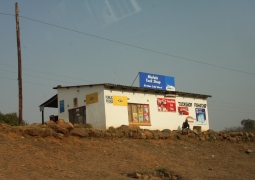
The Minister of Small Business Development, Ms Lindiwe Zulu, believes that South Africa can defeat the challenges of poverty, unemployment and inequality by providing more support to small, micro and macro enterprises (SMMEs).
She told delegates of the National Council of Provinces (NCOP) during the debate of the department’s policy budget vote that currently “the contribution of SMMEs to the South African economy is below its potential. We need to do better and match the global average, which show small businesses share higher levels of participation in various economies. This is possible if we heed the President’s directive to set aside at least 30 per cent of government procurement budget of around R600 billion towards SMMEs and cooperatives.”
She said a majority of the citizens now appreciate the value and contribution of small businesses to the economy. “They realise that supporting small businesses will defeat the scourges of poverty, unemployment and inequality. The huge demands placed by SMMEs and cooperatives on my department since its inception is a clear confirmation that South Africans are beginning to recognise the possibilities and opportunities in entrepreneurship and we need to nurture this entrepreneurial culture and ensure that we breed a society of a job creators and not just job seekers.”
Minister Zulu told the NCOP that SMMEs contribution to the economy continued to increase, despite the increasingly difficult economic conditions. The tax revenue collected from SMMEs also demonstrates that this sector is increasingly becoming a force to be reckoned with.
“We are determined to strengthen the small business sector to enable it to occupy its rightful place in the mainstream economy and too demonstrate that small business is the big business of the future, and [that by] working together we can indeed achieve more,” she said.
One of the major challenges faced by small businesses, she said, is the late payment of their invoices, with government being the main culprit. “This is one of the main challenges consistently raised by organised business. And, as government departments are the main defaulters, government has through the Public Finance Management Act compelled all spheres of government and its entities to pay service providers within 30 days of receiving valid invoices,” she added.
NCOP Delegate and Democratic Alliance representative Mr Jaco Londt said in most countries across the world small business form the backbone of their economies. In emerging countries the percentage contribution is climbing significantly, not only in driving the economy, but also in addressing unemployment.
“Minister, you and your Department should be focusing all your efforts to ensure that the budget is spent on supporting and assisting small businesses so that they can, in turn, create employment for the millions of South Africans who have given up hope of ever finding a job,” he said.
The House Chairperson for Inter-governmental Relations and Members’ Support in the NCOP, Ms Masefako Dikgale, called for the revamp of the country’s education system to improve entrepreneurship studies. “The education sector is at the heart of a knowledge-based economy that is not set up to respond swiftly to changes in business demands for new and old skills. One thing that our education system must improve on is entrepreneurship studies,” she said.
She added that both government and business must join hands to put measures in place to remedy the growing mismatch between the offerings of the education sector and the demands of business.
Another NCOP Delegate Mr Lennox Gaehler, of the United Democratic Movement, said government’s model of delivering infrastructure plays a role in hampering the development of small businesses. “Small businesses have been relegated to the end of the value chain and that affects the transformation trajectory, in that they move to the periphery of the mainstream of the economy,” he said.
The National Development Plans projects that by 2030 no less than 90 per cent of new jobs will be created in small and expanding firms. The NDP envisage that in 2030 the economy should be in full employment, equip people with the skills they need, ensure that ownership of production is more diverse and able to grow rapidly, and provide the resources to pay for investment in human and physical capital.
Sakhile Mokoena
7 June 2017

